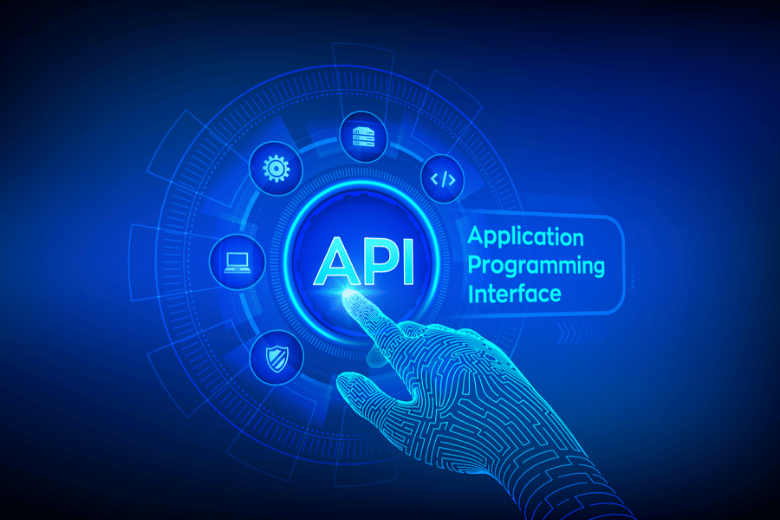In the rapidly evolving landscape of web development, staying ahead requires continuously updating your skillset. As we navigate through 2025, certain technical abilities, tools, and soft skills have become non-negotiable for developers looking to thrive in this competitive industry. Whether you’re just starting your journey or are a seasoned professional aiming to remain relevant, this guide outlines the most crucial skills that will define successful web developers this year.
Technical Skills Required for Web Developers
Proficiency in Core Web Languages

At the heart of every website and web application are three foundational languages: HTML, CSS, and JavaScript.
HTML5: This is the latest version of HyperText Markup Language, used to structure content on the web. HTML5 introduces semantic elements (like <header>, <footer>, <article>, and <section>) that improve accessibility and SEO, making your sites more discoverable and user-friendly.
CSS3: Cascading Style Sheets control the look and feel of a website. CSS3 brings advanced features such as Flexbox, Grid, animations, and transitions, enabling developers to create visually stunning, responsive layouts that adapt seamlessly to any device.
JavaScript (ES6+): JavaScript is the scripting language that brings interactivity to web pages. Modern JavaScript (ES6 and beyond) introduces features like arrow functions, classes, modules, and async/await, which streamline code and enable the development of complex, dynamic applications.
Front-End Framework and Libraries

Building modern, scalable web applications is much easier with the help of frameworks and libraries.
React.js: Developed by Facebook, React is the most popular library for building user interfaces, especially single-page applications. Its component-based architecture allows for reusable, maintainable code.
Vue.js: Known for its simplicity and flexibility, Vue is a progressive framework that is easy to integrate and ideal for both small and large projects.
Angular: Backed by Google, Angular offers a comprehensive solution for building enterprise-level applications, featuring two-way data binding, dependency injection, and a powerful CLI.
CSS Frameworks (Bootstrap, Tailwind CSS): These frameworks speed up development by providing pre-designed components and utility classes for responsive design, ensuring consistency and saving time.
Backend Development Expertise

A web developer’s toolkit must include backend skills to handle data, authentication, and application logic.
Node.js: Enables JavaScript to be used on the server side, making it possible to build fast, scalable network applications.
Python (Django, Flask): Python’s readability and simplicity, combined with frameworks like Django (full-featured) and Flask (lightweight), make it a favorite for backend development.
PHP (Laravel): PHP remains widely used, and Laravel offers elegant syntax, built-in authentication, and an active ecosystem.
Database Management: Understanding both SQL (MySQL, PostgreSQL) and NoSQL (MongoDB, Firebase) databases is crucial for storing and retrieving data efficiently.
API Development and Integration

Modern applications are rarely standalone, they interact with other services and platforms via APIs.
RESTful APIs: REST is the standard for web service communication, using HTTP methods to perform CRUD operations. Knowing how to design, build, and consume RESTful APIs is essential.
GraphQL: Developed by Facebook, GraphQL allows clients to request exactly the data they need, reducing over-fetching and under-fetching of data, and is increasingly popular for complex applications.
Version Control Systems

Efficient collaboration and code management are made possible by version control systems.
Git: The industry standard for version control, Git allows developers to track changes, revert to previous versions, and work collaboratively on projects.
Platforms (GitHub, GitLab, Bitbucket): These platforms enhance Git by providing cloud repositories, issue tracking, code review, and CI/CD integration.
Testing and Debugging

Quality assurance is a non-negotiable aspect of modern web development.
Unit Testing: Frameworks like Jest, Mocha, and Jasmine allow you to test individual components and functions, ensuring they work as intended.
End-to-End Testing: Tools like Cypress and Selenium simulate user interactions to test the entire application workflow.
Debugging: Mastery of browser DevTools and error monitoring tools (like Sentry or LogRocket) is essential for identifying and fixing bugs efficiently.
Security Best Practices

With cyber threats on the rise, security must be integrated into every stage of development.
Secure Coding: Protect your applications against common vulnerabilities such as SQL injection, cross-site scripting (XSS), and cross-site request forgery (CSRF) by validating input, sanitizing data, and using secure authentication methods.
HTTPS and Security Headers: Always use HTTPS to encrypt data in transit, and implement security headers like Content Security Policy (CSP) to prevent attacks.
Authentication and Authorization: Use robust authentication systems (OAuth, JWT) and ensure users have appropriate permissions.
Cloud Computing and Deployment

Deploying and scaling applications efficiently is key to meeting user demand and ensuring uptime.
Cloud Platforms: Familiarity with Amazon Web Services (AWS), Google Cloud Platform (GCP), or Microsoft Azure is increasingly expected. These platforms offer scalable infrastructure, managed databases, and serverless computing.
CI/CD Pipelines: Continuous Integration and Continuous Deployment automate the process of testing and deploying code, reducing errors and speeding up releases.
Embracing New Technologies

Staying ahead means being open to learning and integrating the latest tools and trends.
Progressive Web Apps (PWAs): PWAs combine the best of web and mobile apps, offering offline access, push notifications, and fast load times.
WebAssembly (Wasm): WebAssembly allows code written in languages like C++ or Rust to run in the browser, unlocking near-native performance for demanding applications.
AI and Machine Learning Integration: Incorporating AI-powered features-such as chatbots, personalized recommendations, or image recognition, can set your applications apart and deliver superior user experiences.
Must-Have Soft Skills for Web Developers
Communication and Interpersonal Skills

Clear Articulation: Developers must explain complex technical concepts in simple terms, whether they’re talking to non-technical stakeholders, writing documentation, or participating in code reviews. The ability to translate “tech speak” into plain language ensures that everyone involved in a project is on the same page.
Active Listening: Effective communication isn’t just about speaking, it’s also about listening. Developers need to absorb feedback from users, clients, and teammates, fostering trust and reliability within the team
Creative Problem Solving and Critical Thinking

Innovative Solutions: Web development frequently presents unique challenges. Developers must think beyond standard solutions, approaching problems from multiple angles to devise creative, efficient fixes.
Critical Thinking: Assessing the root causes of issues, especially under tight deadlines, is essential for developing solutions that are both effective and scalable
Time Management and Organization

Prioritization: Managing multiple tasks and deadlines is a daily reality. Developers must balance urgent issues with long-term projects, ensuring nothing falls through the cracks.
Task Management: Using techniques like the Eisenhower Matrix, Kanban boards, or the Pomodoro Technique can help organize workloads and boost productivity.
Teamwork and Collaboration

Cross-Functional Work: Developers often work with designers, product managers, marketers, and other stakeholders. The ability to collaborate across disciplines ensures that technical and business goals align.
Feedback and Support: Being a good team player means giving and receiving constructive feedback, mentoring others, and contributing to a supportive team environment
Emotional Intelligence

Empathy and Self-Awareness: Understanding and managing one’s own emotions, as well as empathizing with teammates and clients, is essential for navigating workplace challenges and building strong professional relationships.
Conflict Resolution: Patience and emotional intelligence help resolve disagreements-whether during code reviews or when handling stakeholder expectations-while maintaining a healthy team culture.




4 Responses
Hi, this is a comment.
To get started with moderating, editing, and deleting comments, please visit the Comments screen in the dashboard.
Commenter avatars come from Gravatar.
Your point of view caught my eye and was very interesting. Thanks. I have a question for you.
Thank you for your sharing. I am worried that I lack creative ideas. It is your article that makes me full of hope. Thank you. But, I have a question, can you help me?
Your article helped me a lot, is there any more related content? Thanks!